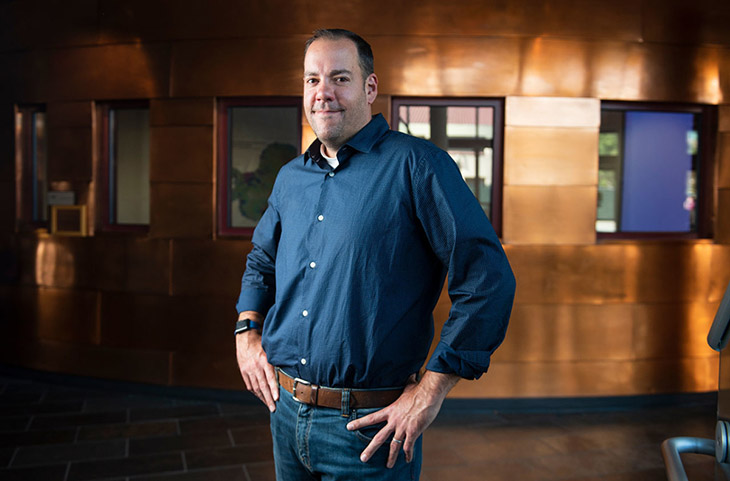
Lab-grown meat has garnered significant attention in the media over the past three years, yet a researcher at UC Irvine contends that the focal point should be on the environmental impact of monocropping soy, corn, and palm for cooking oils. This scientist proposes a shift in perspective by emphasizing the synthesis of cooking fats, a process already conducted globally in soap production.
By manufacturing cooking fats synthetically, akin to established industrial practices, humanity stands to reclaim vast expanses of farmland for natural ecosystems. This approach could result in the conservation of billions of gallons of water, prevention of widespread environmental contamination from pesticides and nitrogen runoff—harmful to marine life—and the cultivation of more nutritious crops on repurposed acreage.
The recent study, featured in Nature Sustainability and led by UCI, explores the potential of large-scale synthetic production of dietary fats using both chemical and biological methodologies. The underlying principle involves utilizing the same raw materials as plants: hydrogen extracted from water and carbon dioxide sourced from the atmosphere. This innovative approach not only addresses environmental concerns but also underscores the possibility of transforming the agricultural landscape towards sustainability and nutritional improvement.
“Large-scale synthesis of edible molecules through chemical and biological means without agricultural feedstocks is a very real possibility,” Steven Davis, UCI professor of Earth system science and lead author of the study, said.
“Such ‘food without the farm’ could avoid enormous quantities of climate-warming emissions while also safeguarding biodiverse lands that might otherwise be cleared for farms.”
In their paper, Davis and his colleagues illuminate additional advantages of farm-free food, underscoring its positive impact on both the environment and society. The benefits outlined encompass a reduction in water consumption and the mitigation of watershed pollution. Furthermore, the model promotes the idea of localized control over food production, offering resilience against weather-related food shortages. Additionally, it addresses the issue of diminishing the dependence on low-paying and physically demanding agricultural labor.
Davis also emphasizes another noteworthy advantage: the prospect of reclaiming existing farmlands and restoring them to their natural state. This approach not only holds the potential to enhance biodiversity but also to establish natural carbon sinks. The historical context provided by the National Park Service reveals a stark transformation, with 99% of the once expansive 170 million acres of North American prairie now converted into agricultural land. Leveraging the carbon storage capabilities of grasslands, which surpass those of forests, presents an opportunity to counterbalance America’s emissions entirely while concurrently reinstating habitats for a myriad of native flora and fauna species.
“I like the idea of not depending on photosynthesis for everything we eat,” Davis said when he stope to UCI press. “At whatever scale, synthesizing food will alleviate competition between natural ecosystems and agriculture, thereby avoiding the many environmental costs of farming.”
Davis emphasized the widespread clearance of tropical rainforests for the establishment of palm oil plantations. Many items found in the middle aisles of grocery stores, such as cookies, crackers, and snack chips, utilize dietary fats derived from these plantations. He questioned whether consumers would discern any difference if the oil used in baking their cookies originated from a local food refinery rather than a plantation in Indonesia.
“Processed foods are thus a likely use for synthetic fats. Folks may be less concerned about what kind of fat is in a store-bought cookie or pie crust because they don’t know what’s in there right now,” he also added.
The authors of the paper said they are more focused on fats because they are the “simplest nutrients to synthesize thermochemically,” pointing to established large-scale techniques for soap-making and polymer chemistry.
The researchers approximated that fats derived from agriculture contribute to emissions of about 1 to 3 grams of carbon dioxide per thousand calories. In contrast, fats with the same molecular structure synthesized from natural gas feedstock with current electricity sources would generate less than a gram of CO2 equivalent emissions. Moreover, utilizing carbon capture from the air and emissions-free electricity sources could result in nearly zero emissions.
“The beauty of the fats is that you can synthesize them with processes that don’t involve biology. It’s all chemistry, and because of that, you can operate at higher pressures and temperatures that allow excellent efficiency,” Davis said. “You could therefore build big reactors to do this at large scales.”
What are your thoughts? Please comment below and share this news!
True Activist / Report a typo


